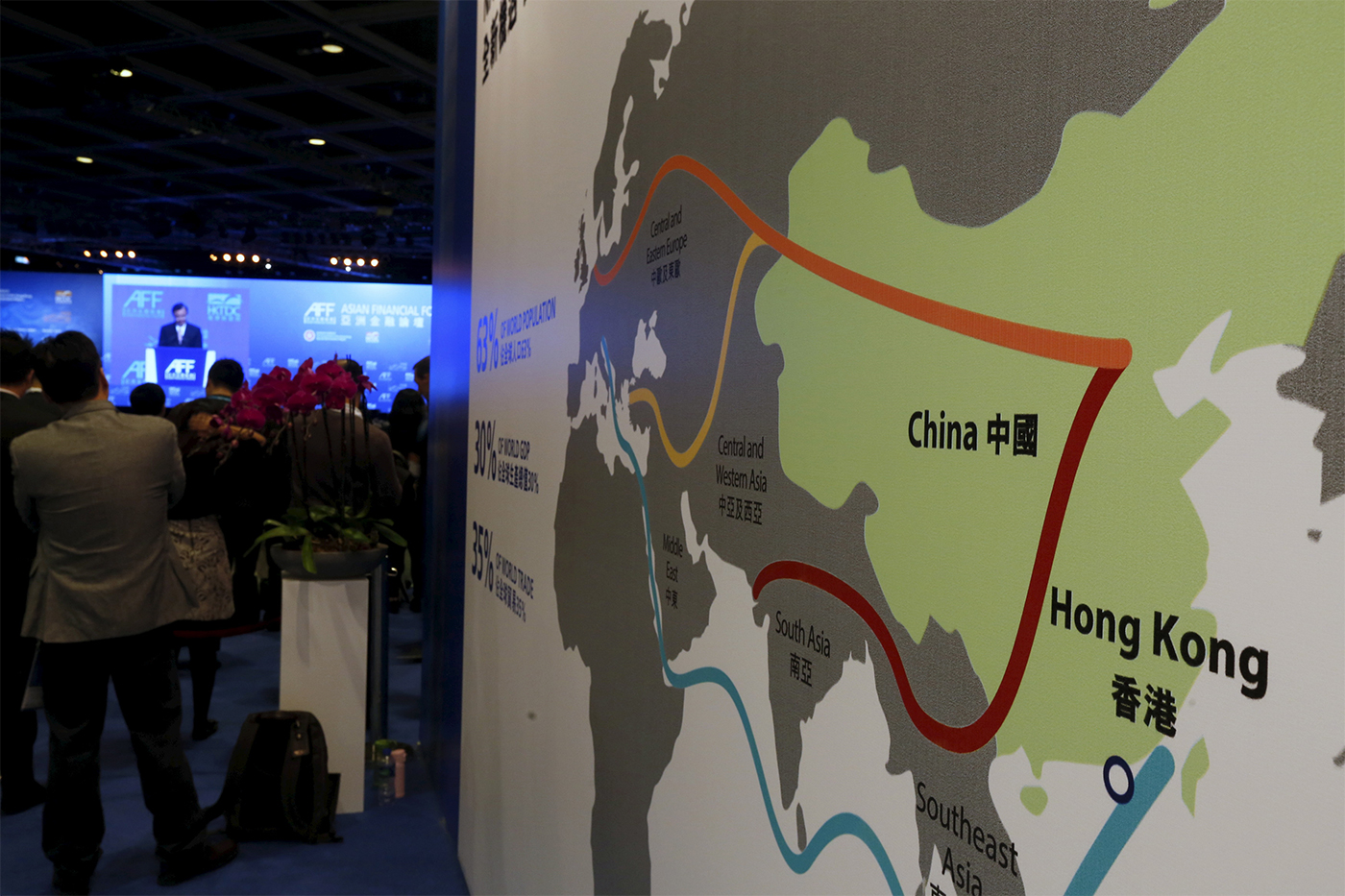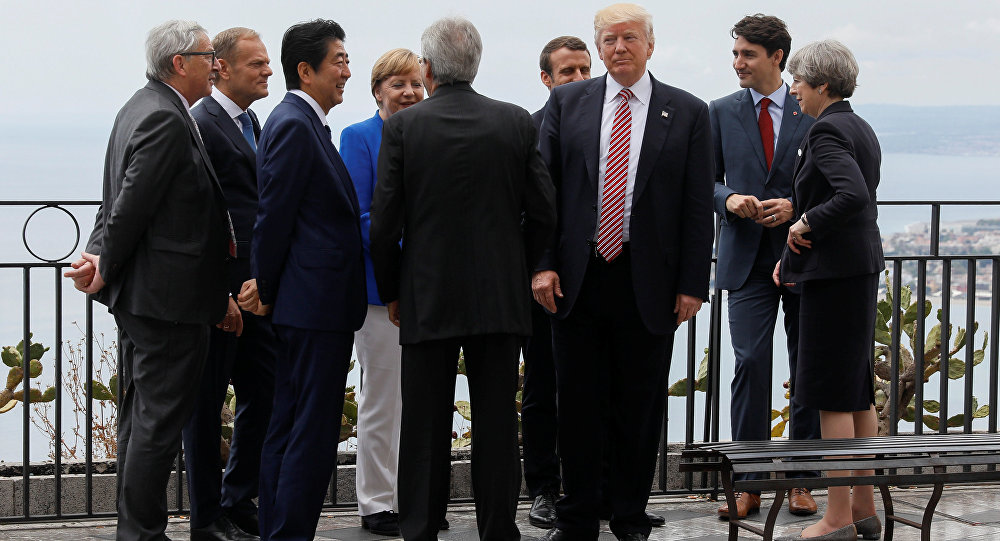The ‘One Belt, One Road’ (OBOR) Forum in Beijing (14-15 May) was attended by high-level representatives of 57 countries; among them, the Presidents of Russia, Turkey, Indonesia, Argentina, the Philippines, Vietnam; the Prime Ministers of Pakistan, Malaysia, Italy, Spain, Greece, Hungary…and of course President Xi Jinping. Despite some reluctance, Britain and Germany sent the Ministers in charge of the economies; and even the USA had its own delegation.
While Western media have somehow snubbed the event, the Chinese mega-plan has the potential to be a game-changer in world politics, and not only in the terms of economic and infrastructure development. The overall expenditure for OBOR would be in the range of $ 150-200 billion; the China-Pakistan Economic Corridor (CPEC) alone would cost $ 57 billion. Harbours, airports, high-speed railways, pipelines, free economic zones are springing up all around Asia, Europe, and Africa. Pakistan plays a key role since it connects the terrestrial and the maritime roads between China and Western Europe, but several other initiatives and countries have a crucial importance, too. High-speed rail links with Western Europe via Kazakhstan and Russia can dramatically cut the time of both freight and passenger traffic. A brand-new railway between Addis Ababa and Djibouti will better link this large and fast-growing African country with a key harbour on the Red Sea. The Greek port of Piraeus, which has been taken over by China’s COSCO, will be the launchpad for Chinese goods in Central Europe, especially if new motorways and railways (including a high-speed link between Belgrade and Budapest) will be completed soon. As a matter of fact, whole continents or world regions will likely benefit from a host of new and faster infrastructures. Chinese companies are extremely good and fast at developing them, and China will also find markets for its excess capital and products. A key driver of the whole OBOR plan is the quest for energy resources; Chinese companies have entered the energy markets allover the world and are developing networks to faster transport resources to an economy which is still growing at the dizzying rate of almost 7% per year.
The ‘One Belt, One Road’ (OBOR) Forum in Beijing (14-15 May) was attended by high-level representatives of 57 countries; among them, the Presidents of Russia, Turkey, Indonesia, Argentina, the Philippines, Vietnam; the Prime Ministers of Pakistan, Malaysia, Italy, Spain, Greece, Hungary…and of course President Xi Jinping. Despite some reluctance, Britain and Germany sent the Ministers in charge of the economies; and even the USA had its own delegation.
While Western media have somehow snubbed the event, the Chinese mega-plan has the potential to be a game-changer in world politics, and not only in the terms of economic and infrastructure development. The overall expenditure for OBOR would be in the range of $ 150-200 billion; the China-Pakistan Economic Corridor (CPEC) alone would cost $ 57 billion. Harbours, airports, high-speed railways, pipelines, free economic zones are springing up all around Asia, Europe, and Africa. Pakistan plays a key role since it connects the terrestrial and the maritime roads between China and Western Europe, but several other initiatives and countries have a crucial importance, too. High-speed rail links with Western Europe via Kazakhstan and Russia can dramatically cut the time of both freight and passenger traffic. A brand-new railway between Addis Ababa and Djibouti will better link this large and fast-growing African country with a key harbour on the Red Sea. The Greek port of Piraeus, which has been taken over by China’s COSCO, will be the launchpad for Chinese goods in Central Europe, especially if new motorways and railways (including a high-speed link between Belgrade and Budapest) will be completed soon. As a matter of fact, whole continents or world regions will likely benefit from a host of new and faster infrastructures. Chinese companies are extremely good and fast at developing them, and China will also find markets for its excess capital and products. A key driver of the whole OBOR plan is the quest for energy resources; Chinese companies have entered the energy markets allover the world and are developing networks to faster transport resources to an economy which is still growing at the dizzying rate of almost 7% per year.
That said, the OBOR initiative is not without its challenges. The first one is related to security. How can Beijing secure its investments in so many countries without intervening in their politics? Sooner or later China might be in the position of having to safeguard its economic activities in many locations; of course this could lead to unpredicted political consequences. Will Beijing have a military presence abroad? Will its defence budget keep growing? These issues are already of concern to all other leading states.
A second big challenge is financial. Also as an effect of China’s trade and investments worldwide, the Renminbi’s power will keep growing: just last year the IMF added it to its basket of elite currencies. At some point, Beijing’s currency might be in the position of challenging or even replacing the US Dollar hegemony. This could trigger a financial, economic and ultimately political storm, with immense global risks. Let us imagine oil trade payments made in Renminbi, or the latter’s use as a reserve currency. How would the USA, which is already a major debtor of China, react? Moreover, China has to strengthen its private equity markets and create an Asian equivalent of Wall Street, perhaps by merging some of its stock exchanges — Shanghai, Shenzhen, Hong Kong…and foreign ones such as Singapore or even Sydney.
Despite such challenges, China (together with India) remains the world’s fastest growing major economy. Neither Beijing nor Delhi (nor Moscow) were represented in the recent G7 in Italy, which took place in Sicily’s atmospheric setting but produced a very modest outcome indeed. No deal was made on climate change, and some agreement was reached only on a declaration on terrorism. Mr Trump’s much-talked behaviours, although at times inappropriate, betray the difference between his brash, business-minded attitude and the endless conversations (with little substantial result) of this generation of EU leaders.
From a European perspective, politicians like Ms Merkel or Mr Macron should attempt to reverse the relative decline of the ‘old continent’ and come up with bold proposals, which are badly needed especially in the Southern and Eastern parts of the continent. Yet the G7 has been more about gossip on Mr Trump’s private life than political solutions. The world economy has shifted East and its most important body has doubtless become the G20.
Interestingly, Western media have dedicated little attention to the OBOR Forum (whose initiatives can bring real change to billions of people) and by contrast focussed extensively on Mr Trump’s wife or handshakes at the NATO and G7 Summits. Sicily, where the G7 was held, has a youth unemployment rate close to 50%, and a persistent record of organised criminal activity. Europe needs and deserves better; Mr Macron, if he is really committed to change the EU’s course (and win the forthcoming French legislative elections), should take note.







